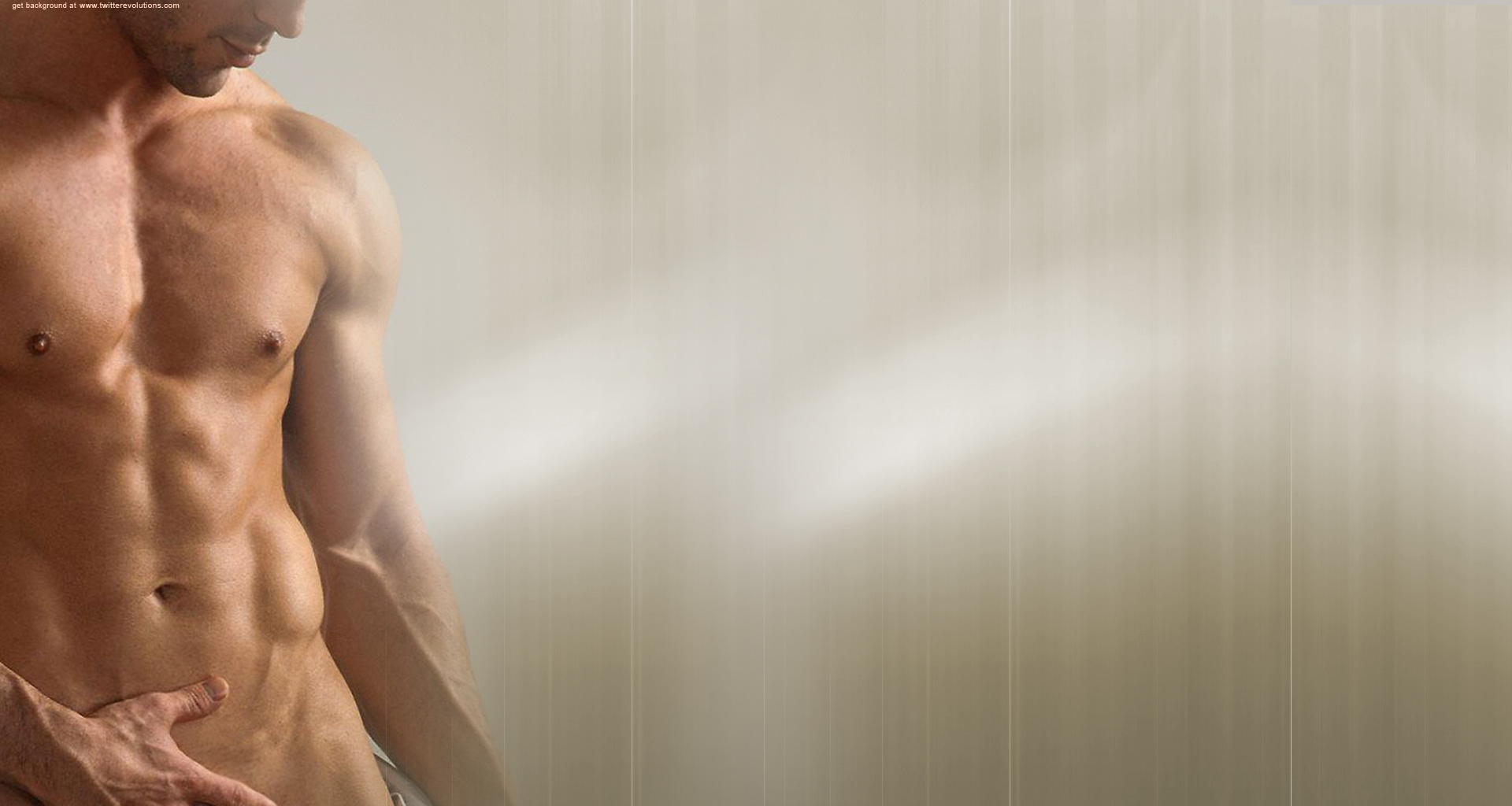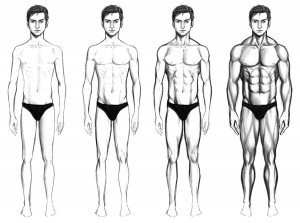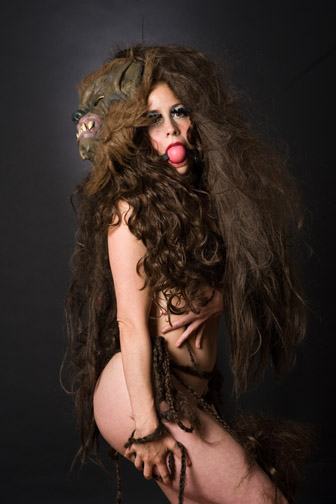This is an interview I did with a gigolo for a book I’m working on entitled, Working Stiffs, about men who’ve worked in the sex business. I first met Hawk at the Sex Workers Art Show in Olympia Washington. He did an absolutely haunting version of the Bruce Springsteen song, I’m On Fire. Turns out he’s a truly astonishing human being. I’m honored to know Hawk.
DAVID: How do you deal with being naked with various clients?
HAWK: It isn’t that hard. I had clients that were big gymbunnies, jocks, younger than me. They didn’t hire me to be pretty, they hired me to play a part, to make them interesting for a period of time.
Hawk Kincaid was born and grew up in the middle of America’s hinter-heart land: Central Illinois. His was a nomadic childhood, and his parents divorced when he was in the second grade.
HAWK: I won’t be so trite as to say my mom was the purest woman on the planet, she had great qualities and human flaws. She spent a lot of herself trying to get approval from my grandmother, from everyone. I remember her caught up in the frustrations of fulfilling expectations. I have brought much of that in my own life – as if what I do is never enough. I make myself acutely aware of whether I am following a path that I determined for myself instead of by others. I have memories of her as constricted, and that is what I find myself running away from. My brothers disagree with me, but I think she regretted not being able to explore more diverse interests. I don’t want to regret that for myself.
Hawk’s dad had difficulty finding a passion for anything in life. And apparently had a very hard time being alone.
HAWK: For me, my father’s a solid, caring family provider who embraced everything from theater to philosophy, but never really making them a life’s passion. He took to ‘Dad’ things, like golf, fishing mowing lawns, and watching TV with beers in hand. Eventually he shacked up with my stepmonster, a failed actress gone alcoholic. Wicked-tongued and passionate, she provided him with alternating pieces of trauma and joy. My father and I never talk about these things or in any detail about HOOK, or my personal life. I still don’t chatter well with my father. My family says I spend too much time thinking about the past, the reasons and impacts of our decisions, but I fear the inevitable reproduction of the life I grew up with, and that’s why it’s important to me.
DAVID: Do you feel like you are a beautiful person?
HAWK: I have good energy.
DAVID: Do you feel like you’re attractive?
HAWK: I ain’t a model.
Hawk was a chubby, unattractive redhead. According to him anyway. Often made fun of and quiet, he yielding to television when he could.
HAWK: I can’t recall many friends growing up because we kept switching neighborhoods and because my family did not encourage that kind of social behavior. One of the biggest forces to change that was a babysitter named Pauline. She was passionate, loudmouthed and in a world where things seemed so sterile, she was an opposition. Not dirty, but touched: the glasses in her kitchen, her aged beads/curtains that separated rooms, her velvet paintings. Some of my fondest memories of childhood are at Pauline’s, lip-synching to Chicago records, hanging bags of Avon samples on doors in rich neighborhoods, the smells and all. It felt more real than my own family, which was so concerned with appropriateness.
Hawk went to private high school.
HAWK: Public junior high made me understand why kids kill themselves.
He’s always had a hard-on for religion. Literally.
HAWK: I have terrible memories of getting hard-ons in church, and perhaps this is the source of my persistently negative association with the church, religion and formality. When I get a little sleepy sometimes I accidentally get a hard-on. Jesus notwithstanding, the notion of sex and church has never been linked in my head, but my body was uncontrollable. In church I always devised plans. Used to pinch myself. I never understood it. But the body is like that. My mother’s cancer. My constant battle with flab. The body infrequently does what I want it to.”
Hawk is very self-conscious about his body.
HAWK: I gotta fight getting fatter. I think that feeling unattractive is the propulsive force for a lot of guys in the business. Certainly for myself, the flattery of men responding positively to you affects your mood, your sense of self. BUT that tends to be an addictive path. Looking outside to find that validation is a long self-destructive cycle. I’ve seen a lot of people fall into some bad behaviors to maintain that position. To give priority to strangers over their lovers, friends. Gaining pleasure from giving pleasure, or the act of being appreciated is simply human – but needing that in ever increasing amounts will kill ya.
Hawk first had sex with a female. When he was 17.
HAWK: I remember her as baby powder smelling underwear with roses/flowers on it. Pink. Definitely pink.
He now identified himself as queer. He first did sex work with a man. He was in college, staying with some bigoted ignorant distant family members, who accused him of gangbanging, doing drugs, and screwing girls.
HAWK: Eventually they accused me of trying to kill some family members by doing my laundry (I know, it sounds insane – it was). So, I got a housesitting gig and met a guy who introduced me to doing bodywork. As weird as it sounds, because of the long hours I worked, it was ideal. The work was rough, a bit scary, but it just made sense. I mean, I was working 10 hour days for nothing at the internship, and then trying to work for a record store for 3-4 hours and making 20-30 bucks after taxes. I could turn around 100 in a session doing massage, and with tips upwards of 200. Since I was uncertain about housing and scared about being so many miles from my home and my family, it was the right choice.
Hawk was nervous the first time he had sex for money. “But I shortchanged myself. After meeting other guys in the business… I should definitely have asked for more. Never shortchange yourself. I never felt guilt about the money. Just guilt about the sorrow.
When Hawk first started doing body work, he was paid extra money for doing Extras.
HAWK: The Extras sometimes involved sex, sometimes because I liked the client, sometimes for affirmation – hell, I even dated one of my clients and he is still one of my dearest friends. I think that’s the strange part of the sex industry, that even in my most panicky moments, it was often an attempt to connect to people. The money part has always been hard for me. Not just in sexwork, but even now as a freelance designer, I dread the billing aspect, because I like what I do. Charging for it seems the right thing to do, but it doesn’t always feel right. Sometimes, I think the generosity I have stems from feeling awkward about asking for compensation. Leftover deposits of Midwest Protestantism. That being said, having sex for money was never wrong. It wasn’t a moral issue. It was the feeling that these are vulnerable people, and I am cautious about business operations or personal behaviors that leverage people’s weakness. It is the source of guilt for me. Not the morality of prostitution, but the sense that making people feel better about themselves is a paid-for operation. Sex can be an industry – but self-esteem just feels diluted when you commercialize it. It’s why I don’t trust bartenders or psychologists. They make a living off of your sorrows.
Hawk’s specialty was breaking-and-entering, also known as B&E. This involves surprising a client, tying him up, and fucking him.
HAWK: Bondage was definitely my thing. And spanking/paddling/abuse. I preferred bondage though because I could tie them up and leave for a bit, come back and be mean, hit them, and then leave. Low maintenance. It also gave me control with clients and meant I had little contact if I wanted. Kink was where I made most of my money and now, when my partner brings up some kinky ideas, I always resort to cuddling cause kink is what I did with customers and I think it reminds me too much of that. Cuddling is something I do with people I care about… This might be something to deal with in the future, I think… Not to vilify radical sex in general, but I just think that it has taken me a long time to rethink sex and contact in positive, constructive terms that don’t mean fear. I think people are often afraid of contact and now, it is what drives me. Laughing during sex. Joy during sex. Porn doesn’t cover that for me and there is a cool aesthetic to that kind of aggressive image. That was an image I maintained with clients, but it is not what I want to come home to.
Hawk’s ads as a sex worker featured a rough tough persona.
HAWK: My partner says I’m a lot of false advertising since my ad looks so rough, but my real identity is more cuddly and fuzzy. I am softer than I let on, especially when working, but that was the edge. To be in control maintained my safety, my security, and solidity in that market. It gave me the elements I needed to walk in and out of the industry in tact. It was a fun image but definitely a lot of work.
Hawk often found that his clients were turned on by being controlled.
HAWK: It’s what all people want, for the most part. Freedom from responsibility, from having to make choices. Most men seem to equate sex to a freedom from thought. Sex is a way to avoid loneliness most of the time. To forget about it for a short time. People want a psychiatrist that doesn’t make them self-consciously aware they are seeking treatment. We play doctors, and the more you understand that what they need more than sex is care, you are good to go. With a client, it’s all performance. I don’t think it’s about being turned on. That doesn’t matter. It’s like theater and you treat it like theater. They don’t know and they certainly don’t care. They don’t want you to be real. Real people have problems, dramas, credit card bills, etc. They want you to be simple and they will want you to be a separate part of their lives. They want you, most importantly, to leave quietly.
Being in the sex business has never really inhibited Hawk in his relationships, but he had commitment problems anyway.
HAWK: A few guys shied away from me when they found out what I did, but in the gay world, I think that prostitution is hardly news to anyone. I’ve been honest my whole life about being in the sex business. Oftentimes I think guys have sex to make a connection. The quality of the sex is bad, and I know I used it for that, as well. When we get hooked up in a relationship, suddenly you don’t need to have sex so you don’t. Or the thrill of sex was not knowing the other person well, and when you get someone you know, the thrill is gone. I often associated sex with those two elements: work or loneliness.”
Hawk was unattractive as a kid. According to him anyway.
HAWK: I am unique in that I don’t represent normal images seen in magazines and idealized in the gay world. How many of us do? At times, I think that is where I found success. I never pretended to be pretty, I simply was genuine. I found clients interesting, and that was something they liked. Truth is that I am jealous of pretty men. Beautiful people paid to be beautiful have to spend their energy there, and my success in the business was not on being beautiful outside – it was about the conversations, the conviction, the energy and the other attributes I leveraged. It will never be my job to be beautiful.
There are diehards who want to reminisce about the beautiful badass days of streethustling and the hyper-masculinity it conjures.
HAWK: But they have short memories and are probably lonely or bored with the reality of today (and were just as bored in the reality then, but choose to forget). It was a messy, self-destructive lifestyle that was either littered with rape and drug abuse or self-involved ego issues. I made it in and out of the industry with my body and health in tact. I could lay down my own rules, and I was never in a position of being abused. I have been ripped off (my own damn fault – for a check… yes, a CHECK!), but if that’s the worst mistake I made in years of taking clients, then consider me lucky.
After having been in the life for awhile, Hawk decided to start a website for male sex workers. Thus HOOK was born.
HAWK: HOOK was a project that grew from my frustrations with silence around the male sex industry. The only discussions I could find harbored an approach toward victimization or were the self-destructive biographies that the press loves to promote. There were other stories. Not just mine, but many stories. I consider myself unique in this particular industry because as a sex worker, I went in and out again a few times, maintained being sober the entire existence, and then have spoken publicly in all forums about the issue. The idea of HOOK was to pull together true stories and tips from guys in the business. When I was in the business, one thing I did share with others was the lack of connection. The separation from different sides of my life, and often the inability to really find an ear that understood. Where was I to vent? Especially since a lot of guys took up drugs or alcohol to release those feelings (which often made them worse). I wanted to provide a format that would open up that dialogue and help people avoid some of the common mistakes. The point was to say, ‘Hey, this happened to me, and here’s something you can do to prevent it from happening to you.’ In the same vein, a lot of guys are in the business for immediate cash and lose sight of long-term goals or what to actually do with the cash or how to get more cash while making better decisions. Often the fast cash comes with the worst decisions, like more money for barebacking, ie having unprotected sex. And HOOK serves as a publication by, for, and about guys in the business. We don’t push people into the business on a float of ‘Whore Pride’, and we don’t tell people to get out. What we do is simply tell it like it as best we can. Through guides and tips and materials, we attempt to build something that is fun, comfortable, and most of all, helpful. You can find the history of HOOK.
Hawk’s brothers definitely know that he’s worked in the sex business.
HAWK: I have shown them HOOK and we have talked about it in various ways and circumstances. My father should know by now, as I have never hid it. I can’t tell you if that is because I don’t want to talk about it and I avoid him or because his opinion would mean so little. I imagine it more the latter.
Hawk has worked as a host in a restaurant, a shoe and record salesman, a tour guide, and teaching art to kids. He graduated from Drake University, Des Moines Iowa, Summa Cum Laude, Majoring in Broadcast News, Minoring in Russian Studies and Cultural Studies (College Honors in Cultural Studies). He is currently an activist for sex workers, is the founder of HOOK On-line, the world’s premier website for male sex workers, a graphic designer, photographer, and performance artist, living in The Deep South.



